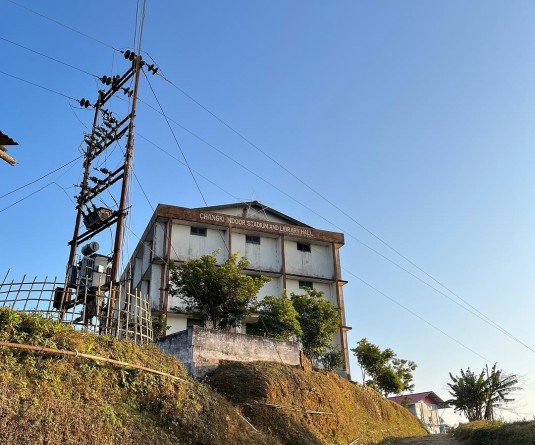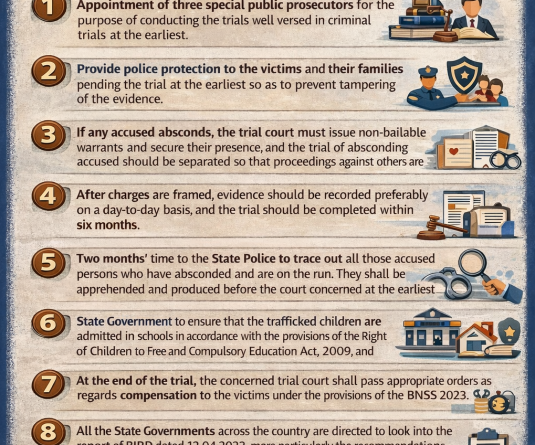
DIMAPUR, MAY 4 (MExN): The Connect Ability Network (CAN) Nagaland today submitted a representation to the Nagaland State Chief Minister, Dr Shurhozelie Liezietsu seeking implementation of the Rights of Persons With Disabilities (RPWD) Act 2016 in Nagaland state.
The act came into force on April 19, 2017. The new bill was passed in the parliament on December 16, 2016, replacing the existing Persons with Disabilities (Equal Opportunities, Protection of Rights and Full Participation) Act 1995.
The CAN Nagaland informed that as per the Census 2011, there were 29,631 people with disabilities in Nagaland, 26% of whom were younger than 18 years. It pointed out that this is the only data on disability available in Nagaland.
The Nagaland Economic Survey 2016-17 tabled in the recent state assembly session has quoted the same 2011 figure indicating that there has been no effort to collect data on disability in the State. The CAN Nagaland underlined that the number of people with disabilities in the state would have increased considerably by now.
The RPWD Act 2016 is a much more robust statute than the 1995 Act and the focus is to protect the rights of people with disabilities and provide punishment for their violation.
Despite the 1995 Act being in existence for more than 20 years, the CAN Nagaland lamented that not a single law contained in it was ever properly implemented by the Nagaland Government.
“Numerous directives have also been issued by the Supreme Court from time to time, but none of these have been complied with properly either. People with Disabilities have thus remained ignored and marginalised with their rights violated by the State Government and society at large. This unconscionable failure cannot and must not be repeated with the RPWD Act 2016,” it asserted.
On April 25, the Supreme Court asked all the States and Union Territories to take immediate steps to comply with the requirements of the Disability Act and file compliance reports. It also directed that special courts be set up in each district to conduct trial of offences committed against them within three months.
In line with this, the CAN Nagaland urged the state government to ensure that these SC directives are complied with strictly.
It asked the Nagaland State Government to immediately notify steps to be taken to identify and certify persons with identified disabilities. The CAN Nagaland also implored the state government to immediately constitute the State Advisory Board on Disability as per the rules contained in the Act.
In the new RPWD Act 2016, the number of disabilities listed has gone up from the existing 7 in the 1995 Act to 21. The 21 disabilities are: blindness, low-vision, Leprosy cured persons, hearing impairment (deaf and hard of hearing), locomotor disability, dwarfism, intellectual disability, mental illness, Autism Spectrum Disorder, Cerebral Palsy, Muscular Dystrophy, chronic neurological conditions, specific learning disabilities, Multiple Sclerosis, speech and language disability, Thalassemia, Haemophilia, Sickle Cell disease, multiple disabilities including deaf/blindness, acid attack victims and Parkinson’s disease Regarding education, the act states that appropriate government and local authorities should endeavour that all educational institutions funded or recognised by them provide inclusive education to the children with disabilities.
This includes admission without discrimination and with opportunities for sports and recreation activities equally with others; making building, campus and various facilities accessible; providing reasonable accommodation according to the individual’s requirements; necessary support individualised or otherwise in environments that maximise academic and social development consistent with the goal of full inclusion; ensuring that the education to persons who are blind or deaf or both is imparted in the most appropriate languages and modes and means of communication; detecting specific learning disabilities in children at the earliest and take suitable pedagogical and other measures to overcome them; monitoring participation, progress in terms of attainment levels and completion of education in respect of every student with disability; and providing transportation facilities to the children with disabilities and also the attendant of the children with disabilities having high support needs.
In terms of skill development and employment, the act calls for formulation of schemes and programmes including provision of loans at concessional rates to facilitate and support employment of persons with disabilities, especially for their vocational training and self-employment.
It also deals with social security, health, rehabilitation and recreation. In this, the act urges measures for free healthcare in the vicinity, especially in rural areas subject to such family income as may be notified; barrier-free access in all parts of government and private hospitals and other healthcare institutions and centres; and priority in attendance and treatment.
The act also provides special provisions for persons with benchmark disabilities in terms of education and government employment.
Regarding accessibility, the act asks the government to implement detailed measures towards ensuring that persons with disabilities are provided with appropriate access to public transportation and utilities. This also includes ensuring that persons with disabilities have access to all contents available in audio, print and electronic media in accessible format.
Meanwhile, the new act necessitates that no establishment shall be granted permission to build any structure if the building plan does not adhere to the rules formulated by the Central Government under section 40.
Further, no establishment shall be issued a certificate of completion or allowed to take occupation of a building unless it has adhered to the rules formulated by the Central Government.
As per the act, all existing public buildings are to be made accessible in accordance with the rules formulated by the Central Government within a period not exceeding five years from the date of notification of such rules.
Towards this end, the appropriate government authority is required to formulate and publish an action plan based on prioritization, for providing accessibility in all their buildings and spaces providing essential services such as all primary health centres, civil hospitals, schools, railway stations and bus stops.
For the purpose of providing speedy trial, the State Governments have also been asked to, with the concurrence of the Chief Justice of the High Court, by notification, specify for each district, a Court of Session to be a Special Court to try the offences under this Act.
It also prescribes the formation of a State Fund for persons with disabilities by a State Government in such manner as may be prescribed by the State Government.
Finally, the act requires the state government to, by notification make rules for carrying out the provisions of this act, not later than six months from the date of commencement of the act.
The CAN Nagaland asked the Nagaland Chief Minister to ensure that the failures of the past should not be repeated again, and see to it that the provisions of the RPWD Act 2016 are implemented in letter and spirit.
“We look with hope to your leadership to initiate change that will end the discrimination and complete exclusion faced by people living with disabilities in Nagaland,” it expressed hope.





